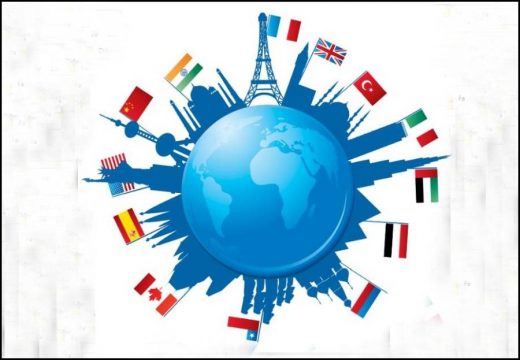Globalization is not dead, it is shaking, but it will not collapse. It faces obstacles because the elders of politics and economics are operating with a pre-digital logic in the 21st century.
Right-wing or left-wing intellectuals are racing to herald the death of globalization. Moreover, there are those who bury him, announce his death, and begin to enumerate his advantages and disadvantages, as if forever gone.
The concept of globalization is not new… It came to the fore with the impressive economic growth that followed the end of the Second World War. The end of the Cold War between the USA and the Soviet Union, the fall of the Berlin Wall, intensified the exchanges between the countries.
When the great financial crisis of 2008 was accompanied by the collapse of 19 American banks, the sense that the existing world order was threatened grew. This idea deepened with ‘Brexit’ and the UK’s abandonment of one of the cornerstones of neo-liberalism, its membership in the European Union.
The most important point of the election victory speech of former US President Donald Trump, after taking the presidential oath, was the slogan ‘America First’ and calling for big companies to return to their homes, and it was a big blow to his leader that he gave up globalization.
In 2020, the French political thinker Thomas Gignoli explained how ‘globalization caused the death of 400 million people’ between 1992 and 2018, that the system established after the Second World War developed in favor of a limited group of people, the majority of them were the destruction of ecosystems, the privatization of states, the private sector. He had published a book in which he explained that he had left him in misery through his release, the loss of equality in service, the spread of poverty, and the pollution of the atmosphere.
The corona epidemic, which destroyed the communication bridges, brought people who dreamed of world unity back to common sense. The optimism that accompanied Joe Biden’s rise to power collapsed when he, in defiance of the sacred principle of free trade, advised his fellow citizens to ‘buy American goods’.
With the unexpected sanctions imposed on Russia by Western countries after Putin’s invasion of Ukraine, the ‘globalization is dead’ club got even stronger. It was a defining moment when everyone discovered that they must eat what they sow and wear what they sew. It was as if the theories of the unity of humanity, the opening of borders, the liberation of trade and activity between countries, and the removal of barriers to human welfare had never been born.
One of the strange paradoxes of our time is that Xi Jinping has become the biggest fan and advocate of globalization. Because globalization is, in its own words, the ‘current of the age’ and it is natural for the great river to encounter opposing currents on its journey towards the sea, but no current can change the flow of the river. The thrust pushes the river to continue its advance, and the resistance it encounters makes it stronger.
Saying so, the Chinese President refuses to bow to the logic of accepting the idea that an economic system is dead, in which his country has turned from its fierce enemy to its greatest beneficiary, thanks to its dynamism and ability to strike balances that are not yet convincing for many.
One of Isaac Newton’s most important laws of physics is the law of action and reaction, which states, “For every action there is an equal and opposite reaction.”
What we are experiencing today is a reaction to the extraordinary opening up of its size, the unprecedented mobility between people, the record volumes of shopping, the luxury beyond expectation, the extravagance and waste, the intertwining of nations to such an extent that it will be difficult to build barriers without causing deadly collapses.
The leader of a country that sees globalization as a doctrine of life cannot wake up one morning and declare that this stage is over, because this is a great disaster. There is talk of hunger and misery that awaits poor peoples, but it is not often mentioned that big decisions to be taken today will have disastrous consequences for the whole world.
The world’s most famous aircraft, Airbus, is assembled like puzzle pieces in giant factories on the outskirts of Toulouse, France. However, parts are brought ready-made from around 30 countries around the world, including China and the USA.
The iPhone we love so much is an American phone made in China with less than five percent of the essential parts available. The rest of its pieces have to be collected from all over the world in order for it to take the form we see and use. Mercedes’ factories are dispersed to continents, its parts travel the seas, oceans and countries in order to be sold at the price we know.
Otherwise, Mercedes would be something completely different from what we know. This grueling quest for a century and a half to find the most effective ways to meet needs at affordable prices, excellent in efficiency, is a great human endeavor, not just a Western genius.
Wars, epidemics, an earthquake of commercial and digital opportunism benefited by a handful of gamblers who bet on the fate of humanity, causing damage and turmoil, all this will force everyone to rethink globalized human behavior and correct course. I hardly know a thinker worth reading who didn’t warn about this moment of Apocalypse. But deaf ears, overwhelmed by their billions, did not hear these calls.
Visits: 125



